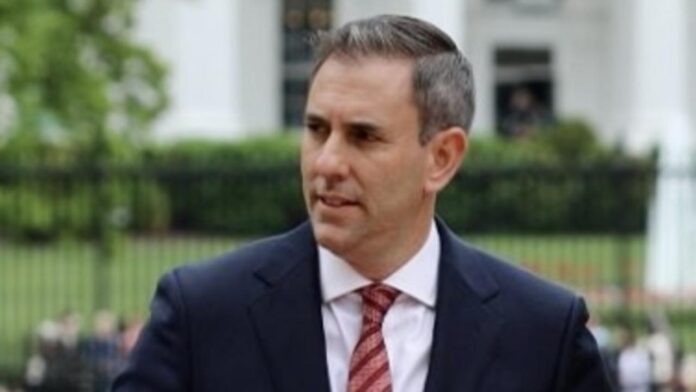[ad_1]
Heightened tensions in the Middle East and fears over China’s economic downturn have led Australia to make cuts to its international economic forecasts, with Treasurer Jim Chalmers warning of a “fraught and fragile” global outlook ahead of the May budget.
The budget has upgraded forecasts for China’s GDP growth to 4.25 per cent in 2024, up from 4 per cent in December, but has downgraded forecasts to 4.25 per cent in 2025 – down 0.25 percentage points more than previously expected.
This marks the weakest three-year growth forecast for China since its economy opened up almost half a century ago.
Following discussions with international counterparts and central bank chiefs in Washington DC, Dr Chalmers said rising geopolitical uncertainty had compounded global concerns about lingering inflation and weaker economic recovery.
“The fraught and fragile global outlook was a big feature of the discussions in Washington DC and will be a big factor as we put the finishing touches on the budget,” he said.
“Given the global challenges coming at us, the May budget will put a premium on responsibility and an emphasis on security.”
Japan’s GDP forecast has been downgraded to 0.75 per cent from 1 per cent in 2024, following weaker than expected consumption.
The UK’s has been revised from 1.75 per cent to 1.25 per cent in 2025 partly due to cost of living pressures, restrictive monetary policy, and a record decline in exports due to trade frictions following Brexit.
The Treasury will finalise its global forecasts for the US following the release of the next GDP on Thursday, which has remained resilient despite stubborn inflation.
Speaking in Washington last week, the Treasurer conceded there would “degree of difficulty” to achieve a second surplus but he believed Australia was still on track, despite geopolitical tensions and concerns about the wider repercussions of China’s troubled property market.
“Relieving cost of living pressures, repairing our budget and reforming our economy is the best antidote to the kinds of risks that we see escalating around the world,” he said.
[ad_2]
Source link


